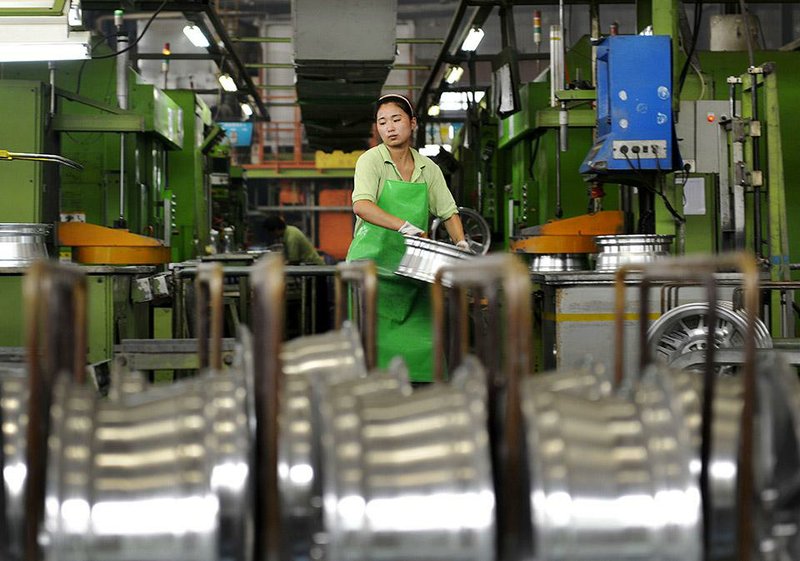BEIJING -- China's premier promised Wednesday to open the world's No. 2 economy wider to foreign companies, promising favorable conditions despite a wave of anti-monopoly investigations that business groups say are likely aimed at limiting competition.
Speaking at a business conference, Premier Li Keqiang made no mention of the investigations of foreign automakers, drug and technology suppliers and other companies. The U.S. Chamber of Commerce said in a report this week that the investigations unfairly target foreign companies and might be a violation of Beijing's free-trade pledges.
"We oppose protectionism in all its forms," the premier said at the World Economic Forum in Tianjin, east of Beijing. "We will continue to pursue a more proactive strategy of opening up."
The premier promised to "improve and standardize the business environment" to attract foreign companies and investment.
Li's comments echo promises often made by Chinese leaders but come at a time when the wave of anti-monopoly investigations have prompted questions about the communist government's attitude toward foreign companies.
Business groups have said regulators might be misusing investigations to promote Chinese competitors or force foreign companies to lower prices.
Regulators have fined Japanese suppliers of auto parts and foreign milk producers. Officials say global automakers including Audi, Mercedes and Chrysler will face punishment for violating anti-monopoly law. The government claims that using a single source for replacement parts constitutes a monopoly, allowing auto manufacturers to charge more for replacements.
Regulatory pressure, along with slowing economic growth, has fueled pessimism among foreign companies in China. A survey last month by the American Chamber of Commerce in China found 60 percent of managers queried felt "less welcome" in the country. That was up from 41 percent who expressed similar sentiments in a survey in late 2013.
Li said Beijing wants foreign companies to help make China a creator of new technologies to support better-paid jobs and more environmentally friendly economic growth.
"We will work hard and turn China into a major innovative country," he said.
The premier promised to stamp out theft of intellectual property but gave no indication of what would happen to major Chinese state companies that critics abroad say are actively involved in industrial spying.
Global companies in fields such as software, autos and pharmaceuticals have set up research and development operations in China. But business groups say they are reluctant to transfer their most advanced know-how to the country because of fears of theft.
Chinese authorities are considering relaxing restrictions on car dealers so they would be able to sell vehicles from multiple brands in the same store, people familiar with the matter said.
The Ministry of Commerce, responsible for regulation governing auto sales, met with dealers and carmakers last week to discuss changes to the rules, three people said, asking not to be identified as the talks were private. The government is also considering allowing parallel imports -- the practice of shipping cars without the authorization of the brand owner -- into China, one of the people said.
The proposed changes might tilt the balance of power away from automakers, which can prevent dealers from selling products made by rivals and dictate which cars are sold where. The move could also be a boon for China Grand Automotive Services Co. and other dealers in the country by giving them greater flexibility in choosing the cars they sell.
"This would untie dealers, allow them to do business in a more flexible way and help boost their profitability," said Han Weiqi, an automotive analyst with CSC International Holdings Ltd. in Shanghai. "It will make the industry more competitive and ultimately benefit consumers with lower vehicle prices and maintenance costs."
Information for this article was contributed by staff members of Bloomberg News.
Business on 09/11/2014

